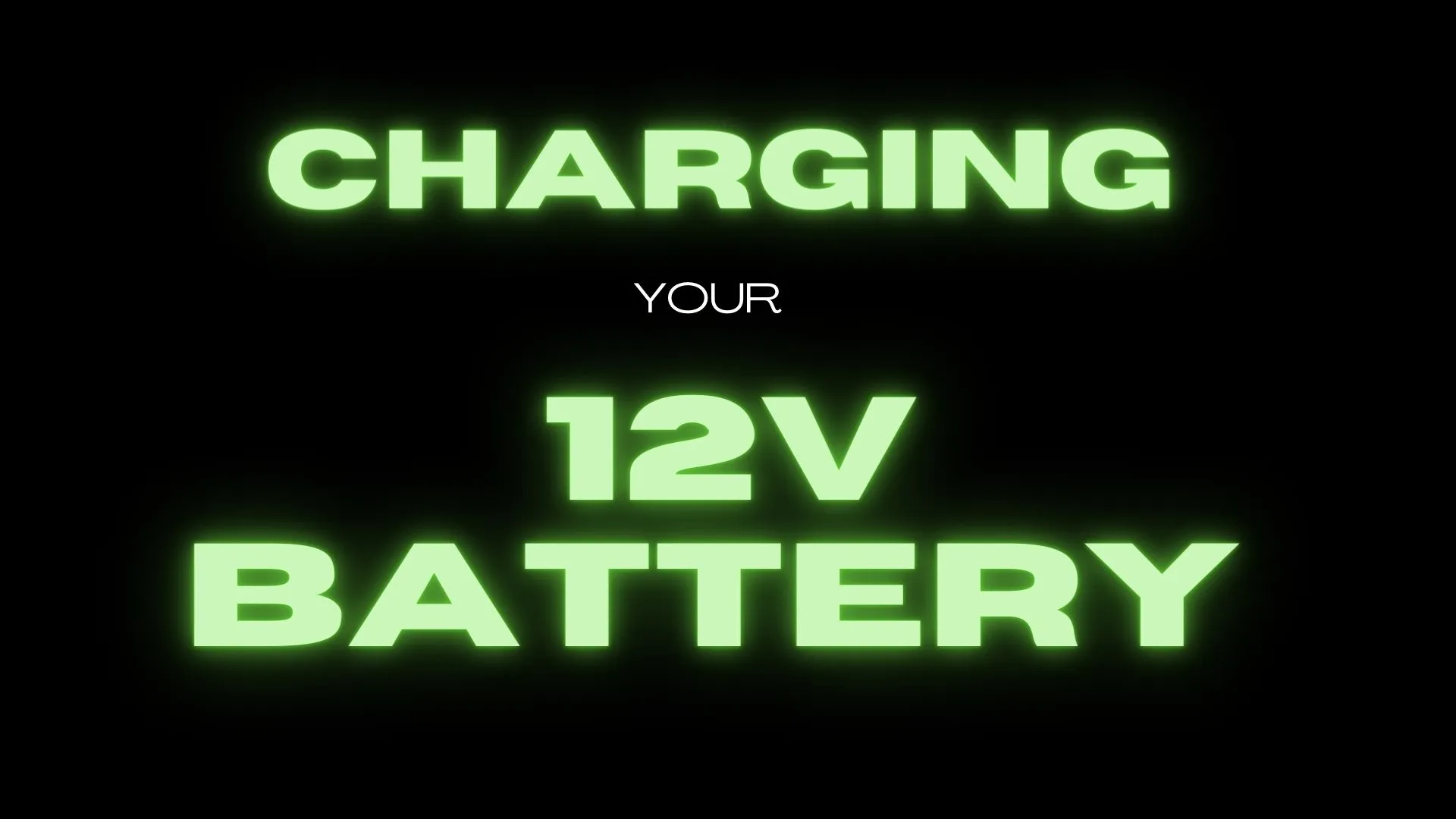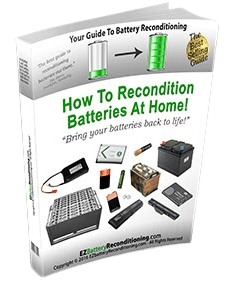Get the most out of your battery with our guide to charging your 12-volt battery. Learn the best methods and tips for optimal performance. Read now!
Are you struggling to figure out the best way to charge your 12-volt battery? With so many different chargers and methods available, it can be overwhelming to choose the right one. But don’t worry, we’ve got you covered. In this blog post, we will break down the most efficient ways to charge your 12-volt battery, so you can keep it primed for performance.
Understanding the type of 12-volt battery you have, whether it’s an AGM (absorbed glass mat), gel cell, or VRLA (valve-regulated lead acid) will play a crucial role in choosing a compatible charger.
So, whether you’re a seasoned pro or a beginner, it’s important to ensure optimal performance and longevity.
In this blog post, I will guide you through the process of selecting the right charger for your specific type of 12-volt battery. Then, I will provide you with the most efficient methods for charging, so you can keep your battery primed and ready to go at all times. Let’s dive in!
Table of Contents
Key Takeaways
- It’s essential to select the appropriate charger for your battery type
- Calculate the correct charging time based on the battery’s charging current
- Always follow safety guidelines to ensure efficient and secure charging
Charging Your 12-Volt Battery – Understanding 12-Volt Batteries
Here are a few considerations.
Battery Types
There are various different types of 12-volt batteries. Some common ones are lead-acid and AGM (Absorbent Glass Mat). Each type has strengths and weaknesses. Lead-acid batteries are affordable and reliable. But, they can be heavy and need more maintenance.
Battery Capacity
The capacity of a 12-volt battery shows how much energy it can hold. Experts measure it in amp-hours (Ah). A 12Ah battery can give 12 amps in one hour. Or, six amps in two hours. Capacity matters in choosing the right charger and knowing how long it takes to recharge. You can find your battery’s capacity on its label or in its manual.
To charge your battery, you can use a trickle charger, an equalization charger, or an automatic charger. A slow charge is best. It helps the battery stay cool and safe. Don’t let the battery get overheated. Stop charging if it reaches hotter than 125 Fahrenheit.
By knowing the types and capacities of 12-volt batteries, you can pick the right charger. And you can make sure your battery charges safely and lasts a long time.
Selecting the Right Amp Charger
Let’s look at charger selection.
Charger Compatibility
It’s important to pick a charger that works with your battery type. Most chargers work well with maintenance-free, wet cell (flooded), AGM, and VRLA (valve-regulated lead acid) batteries.
| Battery Type | Charger Compatibility |
|---|---|
| Maintenance-Free | ✓ |
| Wet Cell (Flooded) | ✓ |
| AGM (Absorbed Glass Mat) | ✓ |
| VRLA (Valve-Regulated Lead Acid) | ✓ |
| Gel Cell | ✓* |
Note: *A specialist Gel Cell Charger is needed for gel cell batteries. But these chargers can be used on the other types. BatteryStuff.com provides guidance on choosing a charger based on battery type.
Charging Speed
The speed at which your battery charges is crucial. The charger should have the right voltage to match the battery. For a 12V battery, you need a 12V charger. Or an adjustable charger with a 12V option. Similarly, use a 6V charger for 6V batteries. BatteryRush.com explains the importance of matching chargers and battery voltages.
When selecting an amp charger, consider the battery size and type. This helps determine the charging speed. Use the following formula to find the amps needed:
Voltage (V) x Battery Type x Charger Size (Ah) = Amps Needed
For example:
- 12V lead-acid x 5Ah = 60 amps
- 24V lithium-ion x 2Ah = 48 amps
Read more about amp usage at PowerClues.com.
By considering charger compatibility and charging speed, you can select the right amperage charger for your 12-Volt battery.
Determining Charging Time
Let’s take a look at calculating the charging time.
Battery Condition
To calculate the charging time, first check the battery condition. A healthy battery will charge faster. But, if it’s worn out or damaged, charging can take longer. Remember to measure the voltage using a multimeter. This will help you understand the battery’s current state.
Charger Output
Next, look at the charger output. Higher output chargers will charge your battery quicker. On the other hand, lower output chargers will take longer. A lower amperage charge can be less strenuous for your battery.
To estimate the charging time, divide the battery capacity in amp-hours (Ah) by the charger’s output current in amps (A).
For example, if you have a 60Ah battery and a 5A charger, the charging time will be around 12 hours (60Ah / 5A = 12 hours).
I find that it is always advisable to add an extra 10% for topping the battery off. In this case, that means an additional 1.2 hours.
So 13.2 hours of charge time in total.
Keep in mind that this is just an approximation. Actual charging time may vary due to factors like battery age and temperature. The depth of discharge of the battery is another variable.
By considering battery condition and charger output, you can make an informed decision on the best charger and estimate the charging time for your 12-volt battery.
Here are some charge times.
| Battery Capacity (Ah) | Charging Time (Hours) | |||||||||
| 1A | 2A | 3A | 4A | 5A | 6A | 7A | 8A | 9A | 10A | |
| 40 | 44 | 22 | 14.7 | 11 | 8.8 | 7.3 | 6.3 | 5.6 | 5 | 4.4 |
| 50 | 55 | 27.5 | 18.3 | 13.8 | 11 | 9.2 | 7.9 | 7 | 6.1 | 5.5 |
| 60 | 66 | 33 | 22 | 16.5 | 13.2 | 11 | 9.4 | 8.3 | 7.3 | 6.6 |
| 70 | 77 | 38.5 | 25.7 | 19.3 | 15.4 | 12.8 | 11 | 9.6 | 8.4 | 7.7 |
| 80 | 88 | 44 | 29.3 | 22 | 17.6 | 14.7 | 12.6 | 11 | 9.8 | 8.8 |
Charging Safety Tips
The most important thing to consider, as always, is safety.
Avoiding Overcharging
To keep your battery healthy, never overcharge it. Connect a compatible charger to avoid damage. Chargers with auto shut-off are best. They stop once the battery is full, and overcharging is not possible.
These include modern smart chargers which contain microprocessors. These monitor your battery’s condition and calculate charge time using sophisticated algorithms.
Always monitor your battery when charging. Pay attention to its temperature. Don’t let it get above 125 Fahrenheit. If it gets too hot, stop charging.
Slow charging is a great choice. It leads to longer battery life. Remember, it can take 12-24 hours to fully charge a 12-volt battery. Don’t rush the process.
Proper Ventilation
When charging your battery, always pick a well-ventilated area. Batteries can release harmful gases during charging. Proper airflow prevents gas buildup, ensuring a safe environment.
Keep flammable items away from the charging area. This reduces the risk of accidents.
Regularly inspect your charger and cables. Damaged cables can be dangerous. Replace them immediately if you find any defects.
Following these safety tips will keep you and your battery safe. Happy charging!
Before You Go…
Don’t leave yet! We’ve got one more post you need to read before you hit the road. What Size Battery Charger Do I Need is packed with valuable information that will save you time, money, and frustration.
If you’ve ever struggled to find the right charger for your 12-volt battery, or you’re tired of dealing with dead batteries when you least expect it, this post is for you.
Trust me, it’s worth the read.
FAQs
Here’s the FAQs
How often should I charge my 12-volt battery?
It depends on how often you use the battery and how quickly it discharges. As a general rule, you should charge your 12-volt battery before it reaches a low state of charge to prolong its lifespan.
Can I charge my 12-volt battery with a solar panel?
Yes, you can use a solar panel to charge your 12-volt battery, but you should make sure that the panel has the appropriate output rating and is compatible with your battery.
Can I charge my 12-volt battery with a car battery charger?
Yes, you can use a car battery charger to charge your 12-volt battery, but you should make sure that the charger is compatible with your battery and has the appropriate output rating.
Can I charge my 12-volt battery overnight?
Yes, you can charge your 12-volt battery overnight, but you should make sure that the charger is designed for overnight charging and has safety features to prevent overcharging.
Can I use a higher amp charger to charge my 12-volt battery faster?
Yes, using a higher amp charger can reduce the charging time. However, you should make sure that the charger’s output is not too high for the battery, as this can cause damage to the battery.
How long does it take to charge a 12-volt battery?
It depends on the battery capacity and charger output. As a general rule, you can estimate the total charge time by dividing the battery’s amp hour rating by the charger’s amp rating and adding about 10% for the extra time needed to fully top off the battery.


